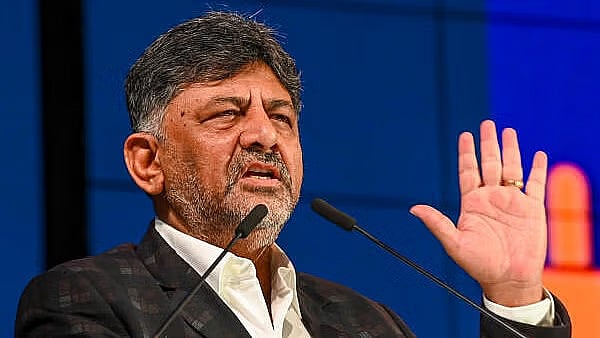
Karnataka Deputy Chief Minister and Bengaluru Urban district in-charge minister DK Shivakumar.
Credit: DH Photo
Bengaluru: The minister in-charge of Bengaluru will likely be 'de facto' mayor of the Greater Bengaluru area, as the executive committee led by him or her will wield significant influence over the city’s affairs — particularly in the execution of plans, schemes and major infrastructure projects, including improvements to major roads and stormwater drains.
While these powers are not fundamentally different from those currently held by the Bengaluru development minister, the Greater Bengaluru Governance (GBG) Act, 2024, marks a shift from the long-standing tradition of having a single mayor for the city. It allows for the creation of multiple municipal corporations.
A central feature of the act is the formation of the Greater Bengaluru Authority (GBA), which will have two main committees: one led by the chief minister and the other by the minister for Bengaluru development.
The chief minister-led committee will have broad representation, including both bureaucrats and elected representatives from across party lines, provided they are residents of Bengaluru. Mayors of the yet-to-be-formed city corporations and two councillors nominated by these corporations will also be members. The act mandates that this committee meet every four months. However, its core function is limited to policy formulation — "just like the legislature", as one senior IAS officer put it.
In contrast, the second committee — led by the Bengaluru development minister or another minister nominated by the chief minister — will be responsible for implementing many of the act’s provisions.
These possibly include the release of state and central government grants, approval of corporation budgets and more. The government had listed these core functions among many others in the bill passed by the legislature, but were dropped only to be added back as rules, it's learnt. Besides the chairperson, who will be a political appointee, all nine members of this committee will be bureaucrats heading key agencies such as the BDA, BMRDA, Bescom, etc.
The Chief Executive Officer (CEO) of the Bangalore Metropolitan Land Transport Authority (BMLTA) will be a member of the chief minister-led committee, but will not be part of the executive committee chaired by the city’s in-charge minister.
According to the act, the executive committee must meet once every two months. One officer described this ministerial role as that of a “de facto mayor”.
However, Shivajinagar MLA Rizwan Arshad offered a different perspective. He argued that the powers of the Bengaluru development minister have been diluted under the new framework.
"Until now, the minister could independently decide on projects and schemes. The new legislation brings more transparency, as every subject will now be tabled before the executive committee, which includes representatives from multiple departments. This is a more decentralised approach,” he said.
However, critics contend that the GBA effectively grants full control over city governance to the Bengaluru development minister, who, unlike in London or New York, is not a directly elected mayor.
A member of the Brand Bengaluru committee noted that no MLA or MP in India currently represents a constituency of over 1 crore voters, leave alone a councillor or a mayor.